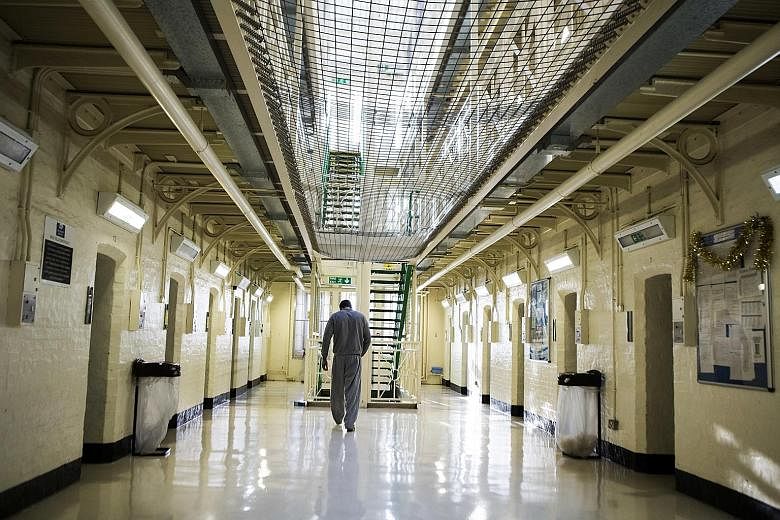LONDON • The most dangerous Islamist extremists being held in British prisons will be removed from contact with other detainees and confined to separate high-security units to prevent them from spreading their ideology, the government said.
The decision to set up the special units follows a review of the risks Islamist extremists pose in prisons that the government initiated last year, Justice Secretary Liz Truss said in an e-mailed statement yesterday.
Prison governors and guards will be given wide-ranging powers to tackle extremism, and there will be a crackdown on the circulation of extremist literature as well as tighter vetting of prison imams.
"Preventing the most dangerous extremists from radicalising other prisoners is essential to the safe running of our prisons and fundamental to public protection," Ms Truss said.
"I am committed to confronting and countering the spread of this poisonous ideology behind bars."
Currently, individuals sentenced in Britain for terrorist crimes and holding extremist views are dispersed to prisons around the country.
While the new units will be sealed off from the main prison, extremists will not be isolated from one another, The Telegraph reported on Sunday, citing officials.
The government will take measures to prevent the inmates from plotting together, a source told the paper, after concerns were raised that the units could help extremists form bigger networks within Britain.
The government review, led by Mr Ian Acheson, a former prison governor, found that they pose a "growing problem". Only a summary of the review is being published for security reasons.
Mr Acheson identified threats from convicted terrorists advocating support for the Islamic State in Iraq and Syria (ISIS) group, along with Muslim gang culture and related violence, drug trafficking and criminality.
Other risks stem from "charismatic" extremists acting as self-styled "emirs" and exerting a radicalising influence on the wider Muslim prison population, and from aggressive encouragement of conversions to Islam.
The review also found "an increasing and disproportionate representation of Muslims within the criminal justice system".
The British security response to the upsurge in militant violence around the world "has led to a significant increase in conviction rates for terrorist offences", Mr Acheson said.
That increase can be expected to continue, he said, "with knock-on consequences for the scale of the threat of radicalisation in prisons".
The review found both Muslim and non-Muslim inmates were vulnerable to radicalisation and called for leadership to ensure Muslim prisoners could safely practise their faith.
"Throughout the review, the team emphasised the importance of faith to prisoners, and its potential to transform lives for the better.
"Its premise was that Islamism - a politicised, expansionist version of Islam - is more ideology than faith, and is driven by intolerance and anti-Western sentiment."
BLOOMBERG, AGENCE FRANCE-PRESSE

